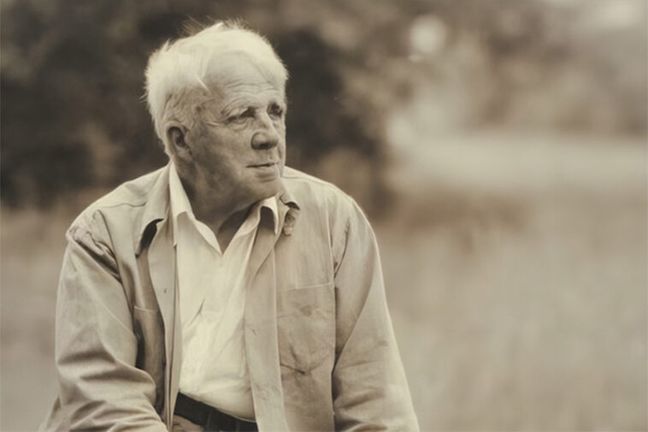This article analyzes Hyman v. Rosenbaum Yeshiva of North Jersey,[i] a New Jersey Appellate Division case of first impression, involving defamation at a place of employment, and the Court’s opinion regarding ministerial exceptions to the First Amendment.
Facts
Rosenbaum Yeshiva of New Jersey (“RYNJ”) is an orthodox Jewish school that embraces its commitment to specific principles of behavior and conduct. Pertinent here, RYNJ restricts physical contact between unrelated people of different genders. RYNJ considers three factors in its hiring of teachers: (1) whether the candidate will consistently conduct themselves in accordance with Halacha,[ii] (2) whether the candidate will adhere to the tenets of Orthodox Judaism, and (3) the candidate’s ability to inspire students to embrace RYNJ’s interpretation of a Torah-based way of life. If RYNJ and the halachic authorities, together, determine that a teacher did not adhere to halacha, then RYNJ would terminate the teacher’s employment.
In 1988, RYNJ hired plaintiff Shlomo Hyman to teach Jewish Studies as a rebbe (a rabbi who is an elementary school teacher). Since RYNJ did not offer tenure to its teachers, plaintiff was required to sign a new employment agreement every year. Included in each employment agreement were certain policies and standards of conduct for teachers that embodied the Orthodox Jewish religious standards. By signing the agreement, among other conditions, plaintiff agreed to refrain from touching students of the opposite gender who are in the third grade or above.
In February 2019, RYNJ learned of allegations involving plaintiff and former fifth and sixth-grade female students. Plaintiff was initially placed on administrative leave. RYNJ promptly hired a law firm to investigate the allegations made against plaintiff. The law firm presented its findings to RYNJ’s Board and its head, Rabbi Daniel Price. Based on claims of massaging students, placing stickers on or near students’ chests, and creating games that allowed physical contact with the students, it was determined plaintiff failed to comply with RYNJ’s standards of conduct. Consequently, RYNJ, in consultation with halachic authorities, terminated plaintiff based on his failure to adhere to Halacha.
On May 15, 2019, RYNJ emailed RYNJ parents, informing them of plaintiff’s termination. The communication spread throughout the RYNJ community, as well as similar Jewish communities. As a result, plaintiff was labeled a pedophile, which he alleged affected any possibility of future employment in education.
Plaintiff sued RYNJ and several Board members, alleging (1) breach of contract, (2) breach of the covenant of good faith and fair dealing, (3) age discrimination under New Jersey Law Against Discrimination, (4) defamation, (5) defamation per se, (6) defamation by innuendo, (7) injurious falsehood, (8) tortious interference with future economic opportunities, (9) negligent infliction of emotional distress, and (10) outrageous conduct causing emotional distress. Plaintiff claimed the investigation was a sham and his termination was based on RYNJ’s desire to reduce payroll, get an older teacher off the books, and improve its public image as to issues of pedophilia.
After some initial pleading and discovery-related jousting, RYNJ and its co-defendants filed a Motion for Summary Judgment based on the ministerial exception. During oral argument, plaintiff admitted to being a “minister,” as viewed under the ministerial exception.
Based on plaintiff’s admission, and the trial court’s finding that plaintiff’s claims involved RYNJ’s employment decision, the judge granted RYNJ’s Motion for Summary Judgment and dismissed plaintiff’s entire case with prejudice under the ministerial exception to the First Amendment. Plaintiff appealed the order granting RYNJ’s Motion for Summary Judgment with respect to the defamation cause of action, claiming the ministerial exception applied only to employment discrimination claims, and further discovery was required to determine whether RYNJ’s motivation in circulating an email regarding plaintiff’s termination was ecclesiastic in nature.[iii]
Legal Analysis
Ultimately, the Appellate Division held, “[w]e find. . . that the ministerial exception applies to bar tort claims, provided (1) the injured party is a minister formerly employed by a religious institution and (2) the claims are related to the religious institution’s employment decision. In this case, there is no dispute whether plaintiff is a minister since he conceded the fact. We conclude that the second requirement is also satisfied, as plaintiff’s defamation claims are ‘part and parcel’ and connected to RYNJ’s decision to terminate him.”[iv]
In reaching that legal conclusion, the Appellate Division first turned to the United States Constitution for the foundation of its analysis. The Hyman Court, quoting the First Amendment, stated: “The First Amendment of the United States Constitution provides, in part, that ‘Congress shall make no law respecting an establishment of religion or prohibiting the free exercise thereof.’”[v]
After expressing reliance on the Free Exercise Clause of the First Amendment, the Hyman Court referenced two United States Supreme Court cases, Hosanna-Tabor Evangelical Lutheran Church & Sch. v. EEOC,[vi] and Our Lady of Guadalupe School v. Morrissey-Berru,[vii] both of which analyzed the ministerial exception.
In summarizing Hosana-Tabor, the Hyman Court stated, “the [Hosana Tabor] Court found the ministerial exception applied to an employment discrimination claim brought by an elementary school teacher against the religious school where she taught.”[viii] Similarly, in reviewing Our Lady of Guadalupe School, the Hyman Court indicated the Supreme Court held, “the ministerial exception applied to two teachers’ lawsuits even though they were not given the title of ‘minister’.”[ix]
New Jersey had no published opinions regarding the application of the ministerial exception outside of employment discrimination cases. The Court necessarily turned to other jurisdictions to formulate its opinion.
In the Pennsylvania Federal Court case of Petruska v. Gannon University,[x] the Court limited the scope of the ministerial exception, refusing to apply it to claims of fraudulent misrepresentation. In effect, the Third Circuit held the ministerial exception did not apply to cases that did not deal with a defendant’s decision to select ministers. In its narrow holding, the Petruska Court stated: “The ministerial exception, as we conceive of it, operates to bar any claim, the resolution of which would limit a religious institution’s right to select who will perform particular spiritual functions.”[xi]
The Hyman Court opted for a more liberal approach, agreeing with the California state court’s ruling in Gunn v. Mariners Church, Inc.[xii] There, the plaintiff, having been terminated as the worship director once found to have been a homosexual, asserted claims of defamation, invasion of privacy, and intentional infliction of emotional distress, after the congregation was told plaintiff was fired for having admitted to acts the church found to be a sin.
In a broader interpretation of the scope of the ministerial exception than that in Pennsylvania, the Gunn Court applied the ministerial exception, holding the “act of explaining to the congregation the reasons for Gunn’s departure were [sic], … ‘part and parcel’ of Gunn’s termination.”[xiii]
The Hyman Court, guided by the Free Exercise Clause of the First Amendment found religious institutions should be allowed to make employment decisions when those decisions are based on religious tenets, unfettered by the First Amendment. Plaintiff in this case admitted to being a minister, and the claims involving RYNJ were employment decisions guided by Halacha.
Takeaways
Religious institutions are afforded judicial deference when making employment decision that are rooted in their religious tenets. Whether a teacher is a minister or not is not the driving force behind the ministerial exception. Rather, religious institutions are allowed, absent court intervention, to make religion-guided employment decisions.
Therefore, when representing a religious institution, it is critical to know whether employment decisions are being based on religious tenets. To solidify such a defense, gather employment agreements, worker manuals, board meeting minutes, training documents, and other pertinent materials that may evidence that focus. If supportable, a summary judgment could end the litigation quickly and economically.
Keep Reading
Sources
[i] Hyman v. Rosenbaum Yeshiva of North Jersey (N.J. Super. Ct. App. Div. 2023) 474 N.J.Super. 561
[ii] Jewish Law as derived from the Torah.
[iii] Hyman v. Rosenbaum Yeshiva of North Jersey, supra 474 N.J.Super. at pp. 565-571.
[iv] Id. at p. 580, citing Gunn v. Mariners Church, Inc. (2008) 167 Cal. App. 4th 206.
[v] Id. at p. 574.
[vi] 565 U.S. 171 (2012).
[vii] 591 U.S. 732 (2020).
[viii] Hyman v. Rosenbaum Yeshiva of North Jersey, supra 474 N.J.Super. at p. 574.
[ix] Id. at p. 575.
[x] Petruska v. Gannon University, 462 F.3d 294 (3d Cir. 2006)
[xi] Id. at p. 307.
[xii] See endnote iv.
[xiii] Gunn v. Mariners Church, Inc., supra 167 Cal. App. 4th at p. 217.


 Editor: Aaron J. Weissman
Editor: Aaron J. Weissman
 Audish v. Macias Builds Upon the Foundation Started in Howell v. Hamilton Meats & Provision, Inc. By Affirming the Admissibility of Medicare...
Audish v. Macias Builds Upon the Foundation Started in Howell v. Hamilton Meats & Provision, Inc. By Affirming the Admissibility of Medicare...
 My New Year’s Resolutions at Work
My New Year’s Resolutions at Work
 Barking Up the Wrong Policy
Barking Up the Wrong Policy
 California Civil Procedure Code Section 998 – a Means to An End
California Civil Procedure Code Section 998 – a Means to An End
 May or Must: California and the Ninth Circuit Applies Grammar Rules for FMLA
May or Must: California and the Ninth Circuit Applies Grammar Rules for FMLA
 Par For the Course
Par For the Course
 Shining Light on Phantom Medical Bills–Lessons from Washington on Using Federal Hospital Price Transparency Rules to...
Shining Light on Phantom Medical Bills–Lessons from Washington on Using Federal Hospital Price Transparency Rules to...
 When Roads Diverge in the Wood: the Power of Risk in Building a Fulfilling Career and Stopping Nuclear Verdicts®
When Roads Diverge in the Wood: the Power of Risk in Building a Fulfilling Career and Stopping Nuclear Verdicts®
 Ask Atty: Scott Ruksakiati
Ask Atty: Scott Ruksakiati